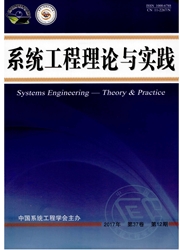

 中文摘要:
中文摘要:
全球气候治理协议有时却会产生加快气候变化的结果,在未来《巴黎协定》的新治理框架下应努力避免“绿色悖论”的再次发生.本文立足我国供给侧结构性改革的国情,通过对于“绿色悖论”效应的理论模型、实证检验以及预测研究,较为全面地描绘了“绿色悖论”效应的触发机制.理论模型的研究表明在完全竞争市场,化石能源开采遵从Hotelling法则,当利率是外生给定且在两阶段中保持不变时,预期逐渐上升的碳税将会导致“绿色悖论”效应;而在持续增长的利率变动下,碳税的改变程度将快于利率的变化,“绿色悖论”效应变得不可逆转;碳价格政策会使污染物排放具有通常的商品市场属性和资本市场属性,应防止由于碳市场而引发的非正常价格波动和潜在的通货问题.实证研究的结果表明,中国在1999年通过《中国逐步淘汰消耗臭氧层物质国家方案(修订稿)》之后并未出现能源价格的连续下降状况,即不存在“绿色悖论”效应,但是这一结论也与我国尚未形成统一的减排体系以及能源的市场化水平等因素有关.通过CGE模拟发现在供给侧改革冲击,碳税政策以及R&D补贴政策的不同外部条件冲击中,供给侧改革对于未来宏观经济的整体影响最大,单独的碳税政策不会引发“绿色悖论”效应,而碳税政策与考虑资本市场反映的供给侧改革情景下,引发“绿色悖论”效应的可能则大大提升,即中国将面对有条件“绿色悖论”效应的风险,碳税与R&D补贴的组合政策节能减排的效果是最好的.最后,本文为降低我国减排政策的市场风险提供政策建议.
 英文摘要:
英文摘要:
A global climate agreement sometimes produces accelerating climate change as a result, in the future under the new governance framework of the Paris Agreement, we should try to avoid the "green paradox" happen again. In this paper, based on the supply side structural reform in our national condition, through the theoretical models, empirical test and prediction research of the "green paradox" effect, we have comprehensively introduced the trigger mechanism of the "green paradox" effect. Theoretical model results show that in a perfectly competitive market, with fossil energy mining Hotelling rule, when interest rates are exogenous given and remain the same in two stages, the gradually rising carbon taxes is expected to lead to the "green paradox" effect; Under the increasing interest rate changes, the change degree of a carbon tax would be faster than the rate change, the "green paradox" effect will become irreversible; The carbon price policy will make the pollutant discharge has the general nature of commodity market and capital market, the government should prevent the abnormal price fluctuations and the potential inflation problems maybe caused by the carbon market. Empirical results show that China after 1999 by "The China National Plan to Phase out Ozone-Depleting Substances (Revised)" does not appear a continuous decline in energy price, which does not exist the "green paradox" effect, but this conclusion also with our country has not yet formed a unified system to reduce emissions and the marketization level of energy and other factors. By CGE simulation study, we have found that among the shocks of reform on the supply side, a carbon tax policy and a R~:D subsidy policy theses impacts of the different external conditions, the supply side reform has the largest macroeconomic effect for the future, a single carbon tax policy will not trigger the "green paradox" effect, the carbon tax policy and consider the supply side of the capital markets reflect the reform scenario
 同期刊论文项目
同期刊论文项目
 同项目期刊论文
同项目期刊论文
 期刊信息
期刊信息
